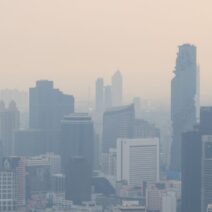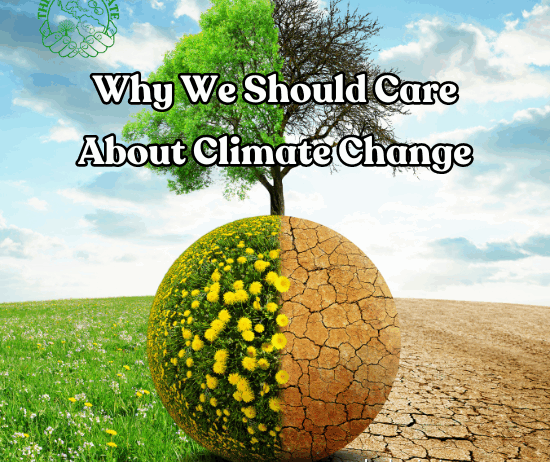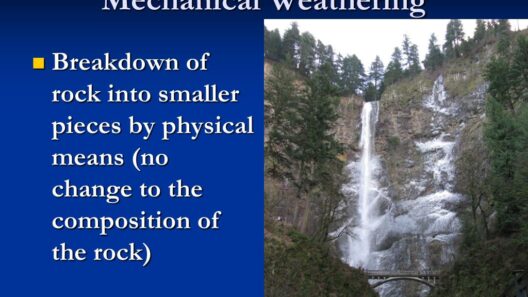The discourse surrounding climate change often elicits a wide array of responses. Some perceive it as a distant concern, relegated to the realms of scientific jargon and environmentalist manifestos, while others recognize its ubiquitous implications that cut across social, economic, and personal dimensions of everyday life. This variation in perception belies a critical truth: climate change doesn’t merely affect biodiversity or weather patterns; it permeates the very fabric of our existence. Understanding why you should care about climate change necessitates a multi-faceted exploration of its immediate and latent impacts.
Consider the tangible effects of climate change that are already manifesting in our lives. Rising temperatures and erratic weather patterns lead to more frequent and severe natural disasters—hurricanes, droughts, and wildfires. Data indicates that these phenomena not only threaten wildlife but increasingly jeopardize human livelihoods, homes, and health. The International Disaster Emergency Committee reports that natural disasters displace millions every year. Such statistics compel us to confront an uncomfortable reality: climate change is not an abstract concern for future generations; it is happening now, reshaping the lives of millions, including our own.
Economically, the ramifications of climate change are profound and troubling. Supply chains are increasingly vulnerable to climate-induced disruptions. Agriculture, an industry foundational to our survival, faces unprecedented challenges as changing climates alter growing seasons and yield quantities. The U.S. Department of Agriculture forecasts that crop yields could decline significantly, inciting food insecurity not just in impoverished regions but increasingly across developed nations. High food prices, driven by scarcity, could become a commonplace reality. The implications for consumers are stark—individuals will face the dual challenge of combating rising costs and confronting the harsh realities of food deserts and accessibility challenges.
Moreover, the health implications associated with climate change warrant urgent attention. As heat waves intensify, respiratory ailments exacerbated by poor air quality see an uptick in prevalence, particularly among vulnerable populations such as the elderly and children. Vector-borne diseases, previously confined to specific geographies, are expanding into new regions as the climate shifts, unfurling unprecedented challenges in public health that cannot be ignored. Latent health risks, stemming from anxiety and stress about the uncertain future of our planet, further compound the mental health crisis—a silent epidemic that is exacerbated by climate anxieties.
Socially, the effects of climate change could deepen existing inequalities and create new disparities. Vulnerable communities often bear the brunt of climate change impacts, lacking the resources necessary for recuperation and adaptation. The intersection of environmental degradation and social justice highlights an intrinsic connection; as the climate continues to change, marginalized groups—often the least responsible for emissions—find themselves disproportionately affected by its consequences. It leads to a fracturing of community resilience and exacerbates the cycle of poverty. Environmental stewardship, therefore, becomes not only an ecological imperative but also a pressing social justice obligation.
Yet, while the pressing nature of climate change may catalyze despair, there exists a notable opportunity for collective mobilization and innovation. Consider the burgeoning clean energy sector, which promises not only to mitigate emissions but also to spur economic growth. Transitioning to renewable energy sources such as solar and wind can create millions of jobs, stimulating local economies while addressing climate change. Such advancements don’t merely represent a shift in how we produce energy; they embody a paradigm shift towards sustainability that can fuel a transition to equitable practices in various industries.
The conversation surrounding climate change also beckons for personal reflection. Each individual plays a pivotal role in this narrative. Choices in consumption, transportation, and energy use, though they may seem insignificant on their own, collectively wield substantial power when adopted at scale. Embracing sustainable practices—such as reducing single-use plastics, supporting local producers, and advocating for policy changes—can catalyze a cultural shift toward environmental responsibility. This interconnectedness underscores a cornerstone of climate awareness: individual actions matter. They create ripple effects, reverberating through communities and encompassing spheres of influence that transcend geographic boundaries.
For those who still harbor skepticism regarding the urgency of climate change, it is imperative to recognize that the science is irrefutable. The consensus among climate scientists is overwhelming, indicating that immediate action is essential to mitigate the most catastrophic effects. Ignoring the evidence does not negate its reality; rather, it could lead to further disillusionment down the road as the consequences of inaction become increasingly pronounced. Education plays an instrumental role in this endeavor. Engaging in conversations about climate change, understanding its nuances, and disseminating information are vital responsibilities that rest on the shoulders of each generation.
In conclusion, the question of why you should care about climate change transcends personal interest. It touches upon a myriad of factors—economic, social, health, and ethical. Climate change is a complex tapestry woven into the reality of existence, and one cannot disregard its influence without consequence. It is imperative to engage with this pressing issue, advocate for sustainable practices, and take cognizance of the interconnected world we inhabit. The path forward necessitates collective action, driven by a shared recognition that the fate of the planet is intrinsically tied to our choices, values, and aspirations for future generations. Ultimately, caring about climate change is not merely an act of environmentalism; it is an affirmation of our commitment to a sustainable, equitable, and thriving future for all.







